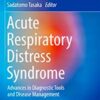The Importance of Accurate Glucose Monitoring in Critically Ill Patients
healthmanagement.orgCritically ill patients are not found just in intensive care units, but throughout the hospital: emergency departments, post-anaesthesia care units, operating rooms, and many other environments now care for the critically ill. These patients require specialised, timely, and individualised care to achieve the best outcomes.
Glycaemic control is a component of care in many, if not most critically ill patients, and the foundation of proper glycaemic control is accurate and timely measurement of blood glucose. Point-of-care testing (POCT) would seem to be a logical solution, but it is not as simple as it appears.
Many POC blood glucose monitoring systems (BGMS) simply do not perform adequately in these patients.
In fact, only one BGMS has been approved by the U.S. FDA for use in critically ill patients.
A major reason for poor performance in some BGMS is from interfering agents.
These can be endogenous (anaemia, hypotension), or exogenous such as medications.
Drugs which are commonly used in the ICU such as dopamine, acetylcysteine, icodextrin, and ascorbic acid are known to cause falsely elevated glucose readings in most meters.

















